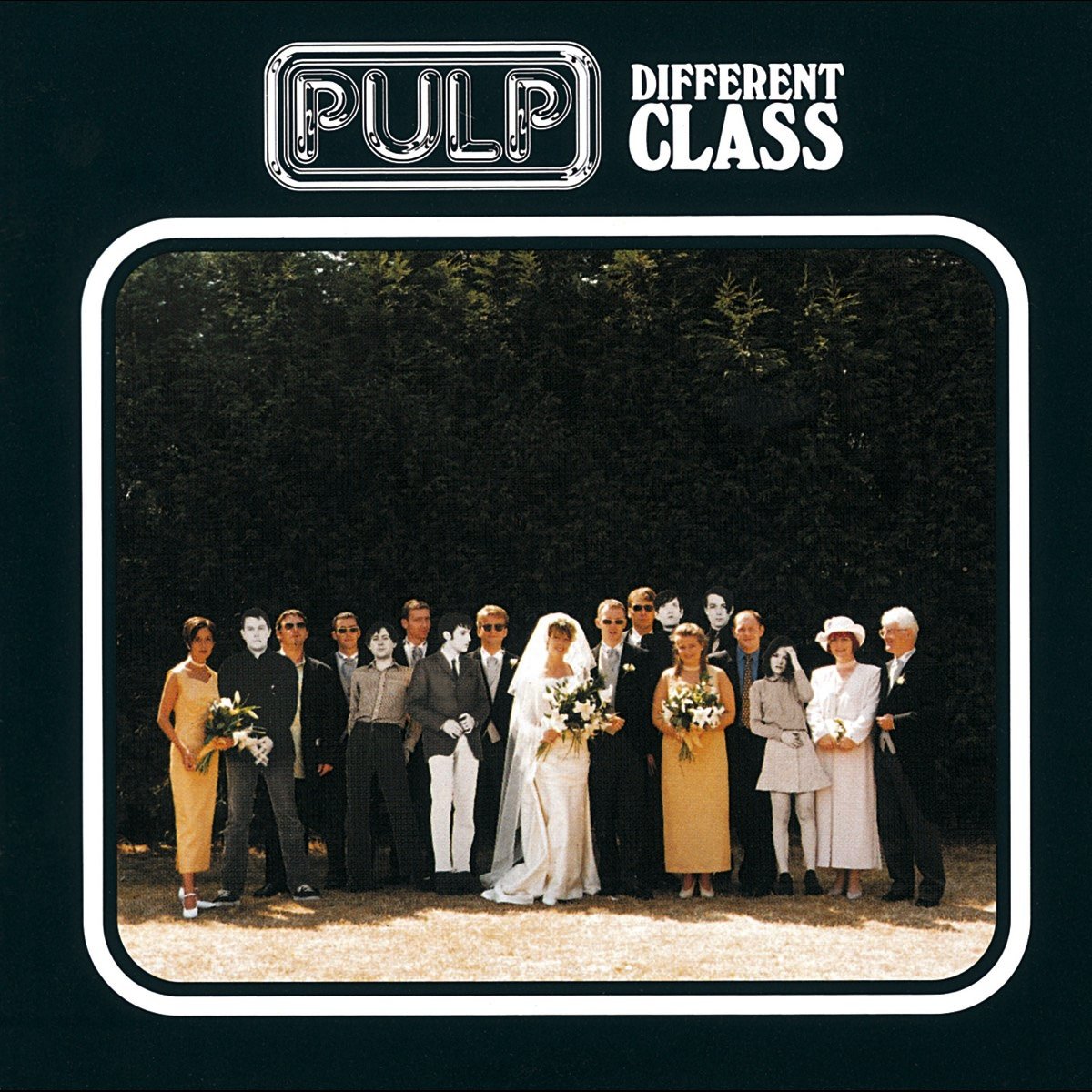Happy 25th Anniversary to Pulp’s sixth studio album This Is Hardcore, originally released March 30, 1998.
A self-effacing peep show that shivers with unequivocal shame and questionable delight, Pulp’s This Is Hardcore suffers no delusions in its appraisal of fame. Formed in 1978, the Sheffield-based band explored different names, rosters, labels and sounds before stumbling upon commercial success in 1994 with their fourth full-length His ‘N’ Hers. The enormously popular Different Class (1995)—an instant Britpop classic—followed on its heels, flaunting coy, buoyant numbers that draw feet to the floor.
But, where Different Class coasts with ramped-up defiance, This Is Hardcore anguishes in the sobering truths that come with aging. And admittedly, it’s an album that I grew into.
When I first heard This Is Hardcore, I was a tender young thing—20 years old and accordingly invincible. I was living a couple blocks off campus with two close friends in an apartment we all loved. Between planned parties with the neighbors and impromptu gatherings, the little boom box in our living room was a hearth of sorts and almost always on.
Pulp had caught my attention a few years earlier, when I first heard the single “Do You Remember the First Time?” from His ‘n’ Hers on Live 105, my go-to Bay Area station. But, as is the case with so many bands, it was their next effort that tipped casual flirtation into full-blown love. Playfully arrogant and deliciously catchy, Different Class remained in my regular rotation for years.
However, This Is Hardcore reminds us that “nothing lasts forever.” The glorious ease of Different Class almost necessitated a fall. And although singer and guitarist Jarvis Cocker was only thirty-four years old when Pulp released This Is Hardcore, it bears a depth of wisdom and perspective worthy of an older age. A tumultuous journey where voyeur and subject become one.
Pairing a snappy sartorial sense with signature cheeky verse, Cocker had long established a swagger all his own—notable even in a genre known for its spirited, oft-jockeying personalities (see Blur’s Damon Albarn, The Verve’s Richard Ashcroft and Oasis’ Gallagher brothers). But while This Is Hardcore is only Pulp’s sixth album, Cocker and the various permutations of the band had been toiling at their craft since 1978 and the cracks in their rock-and-roll veneer were beginning to show.
Listen/Watch (Playlist):
Compared to the sprightly abandon of Different Class singles “Common People” and “Disco 2000,” This Is Hardcore’s first single “Help the Aged” diverged in pace and sentiment. Where Different Class tears ahead with rollicking zest, This Is Hardcore looks back dramatically and resignedly (“funny how it all falls away”)—a past-her-prime diva magnificently parading through her last big hurrah.
Though still touting the larger-than-life moments and backdoor indulgences that permeate Pulp’s earlier catalog, This Is Hardcore sees Cocker exploring the many revelations adulthood brings as well as the seedy underside of stardom. Settling into a colder reality of loneliness and anxiety, Cocker illuminates the various interpersonal woes that plague society while also turning the lens toward his own private cares.
“A Little Soul,” another album single, casts a little musical levity to heartbreaking words, as a deadbeat father pens a letter to his estranged son in a rare moment of reckoning: “You look like me, but please don’t turn into me / You look like me, but you’re not like me, I hope / I have run away from the one thing that I ever made / Now, I only wish that I could show you / Wish I could show a little soul.”
“Sylvia” evokes similar pangs of regret. Here, another older man observes a younger woman being mistreated and remembers how he committed the same offense in his youth. Years later, he finally realizes the error of his ways and urges the woman, an echo of the Sylvia he once knew, to push for something better.
Coming down from the bravado of Different Class, Cocker also adopts a more introspective eye. In “Dishes,” he willingly shakes off the artifice of celebrityhood and the expectations it carries in favor of layman living: “I am not Jesus, though I have the same initials / I am the man who stays home and does the dishes.”
In title track “This Is Hardcore,” against a grand bed of horns, pervy piano and strings, Cocker likens his role as performer to pornographer, in that he’s constantly putting on a superficially gratifying, yet ultimately unfulfilling show. The song ends, posing the “what’s next?” question—one, despite the pressures of his audience, he knows he must answer for himself: “Oh, what a hell of a show / But what I want to know / What exactly do you do for an encore, yeah? / 'Cause this is hardcore.”
Enjoying this article? Click/tap on the album covers to explore more about Pulp:
The upbeat, appropriately named “Party Hard” takes a more blithe attitude toward the sordid affair, acknowledging the conundrum (“Entertainment can sometimes be hard / When the thing that you love / Is the same thing that’s holding you down”), but also cheerily reveling in it (“And do you ever stop to ask yourself / If you didn’t come to party / Then why did you come here?”).
This is Pulp, after all. Despite a newfound grimness, This Is Hardcore takes you on a whip of a ride full of pleasurable turns before shooing you off into the disquieting night.
LISTEN:



